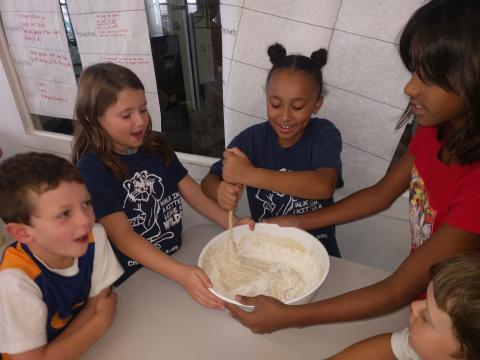
We’re in the midst of studying the story of Bilam and Balak. As we look at their experiences of awe and wonder, we paused to notice the role advice plays in this story and in our own lives.
We asked our students to give us advice on this scenario:
“I want to have a sleepover with all my friends this weekend, and my parents won’t let me. What can I do?”
They offered lots of advice, some quite helpful and some quite humorous:
- Bargain with your parents. Offer to do more chores in exchange for having the sleepover.
- Trade: Give up TV time in exchange for having the sleepover party
- Escape: Jump out the window, call all your friends, wake them up, and go camping!
- Reschedule: Work with your parents to choose another weekend
- Compromise: Have the sleepover with fewer friends
- Annoy: Follow one of your parents around the house until you annoy them into letting you have the sleepover
- Threaten: Tell your parents you won’t do chores or homework until they let you have the sleepover
- Be extra nice & ask again later: help with everything, no fighting with your younger sibs, and then ask again later
- Write it down: In a written letter or card, you can make sure to get your words just right, and that’s harder with talking.
Then, they reflected on that advice and developed some ideas about what makes good or bad advice:
Great Advice:
- Keeps everyone calm. No one yells or screams as you implement the advice.
- Effective, gets everyone something they want.
- Allows you to communicate with words, tone, and volume that other people can listen to and helps you get what you want.
- Keeps everyone safe.
Bad Advice:
- Not safe
- Gets you in trouble
- Isn’t good for someone else
